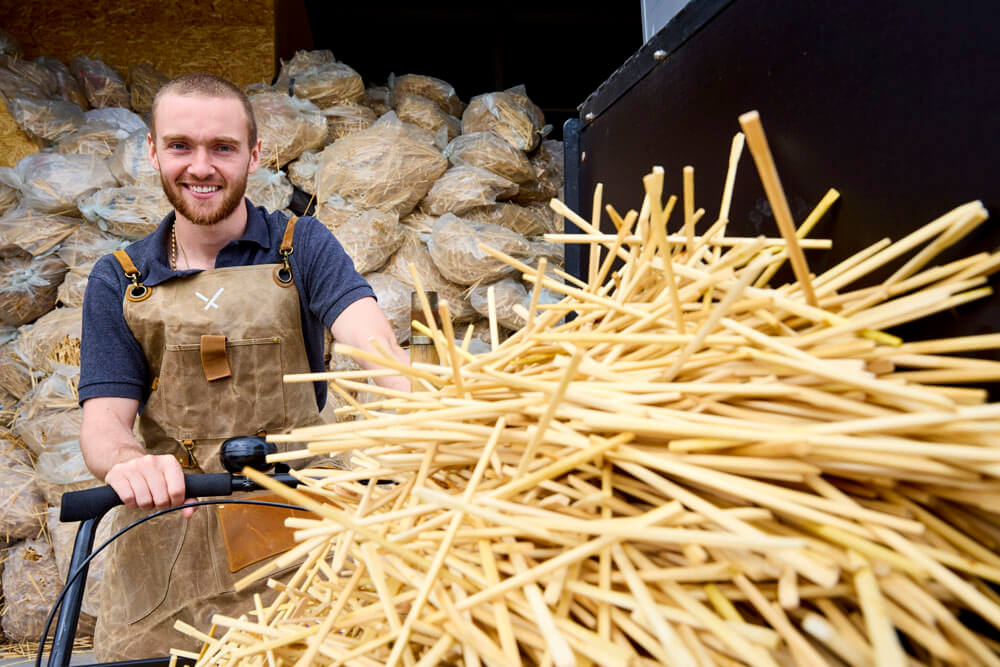ChopValue UK, spearheaded by Sheffield United player Tom Davies, has emerged as a pioneer in sustainable business practices. Over the past 12 months, the company has amassed nearly five million used chopsticks from restaurants across the UK. These chopsticks are destined to be transformed into distinctive furniture and homeware pieces, including restaurant tables, office desks, and wall paneling.

The scale of global chopstick usage is staggering, with an estimated 80 billion chopsticks used annually. Without interventions like those of ChopValue UK, the majority of these would end up in landfills. The company’s efforts have dramatically illustrated the magnitude of this waste through AI-generated images depicting what 80 billion chopsticks would look like at iconic UK landmarks such as Big Ben.

ChopValue UK officially opened its doors on June 14, positioning itself within the burgeoning circular economy. This innovative approach not only reduces waste but also redefines it as a resource. The company’s vision aligns with the potential of the circular economy, which is projected to generate up to £3.5 trillion in economic benefits over the next decade.

Strategically located in Liverpool, the flagship Microfactory is set to make a significant impact. It is the first in the ChopValue network to utilise an electric van for community collections, emphasising the company’s commitment to sustainability. In its inaugural year, ChopValue UK aims to convert 25 million chopsticks into high-quality, climate-positive products, potentially saving up to 1,200 tonnes of CO2 emissions.

Tom Davies, Managing Director of ChopValue UK and Sheffield United football player, is deeply involved in the operation. “We are paving the way for a greener future, where not only waste streams are transformed into valuable products made to last, but we can also source, produce, and distribute locally in our communities,” Davies shared. His hands-on approach includes everything from sorting used chopsticks to operating laser engraving machinery.
Davies is also leveraging his platform as a professional athlete to promote sustainability within the sports industry. He aims to foster strategic relationships with sports brands, providing a tangible route to sustainability. “As a footballer, I am grateful for the platform my career has provided me and am committed to lead by example. Educating others on subjects like the importance of sustainability and responsible manufacturing is my priority, with the goal of ensuring upcoming generations have the same resources we have been fortunate to have.”

ChopValue UK has already completed numerous orders, partnering with both local and national businesses to create a variety of products. The company not only turns waste into resources but also ingrains the principles of circularity and sustainability within the communities it serves. Neil Sang, UK Director of ChopValue UK, remarked, “To launch in Liverpool has been a dream and we’ve relished training up our new employees, showing them a new set of green carpentry skills. The magic we are making in the Microfactory is special.”
The process of transforming chopsticks into statement furniture is meticulous. It begins with the collection of chopsticks from partners such as restaurants, cafeterias, and shopping centres. The chopsticks are then sorted, resinated with an environmentally friendly, water-based resin, and dried to reach the target moisture level. The densification process involves compressing the chopsticks into an engineered composite material, further sterilising them with high heat and pressure. Finally, the high-quality dense tiles are sanded and assembled into the desired products, finished with a vegetable-based oil for residential uses or a commercial finish for B2B projects.

ChopValue UK’s commitment to sustainability and innovative approach to recycling waste into valuable products sets a new standard in the industry. As they continue to grow, their mission to leave no chopstick behind and inspire other businesses to join the circular economy will undoubtedly contribute to a greener future.


